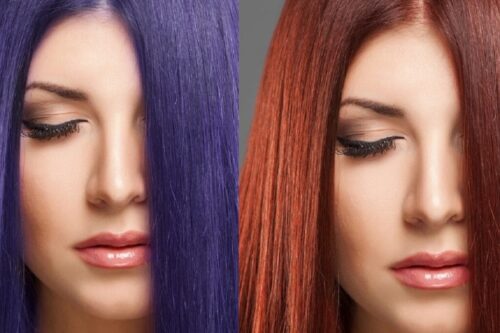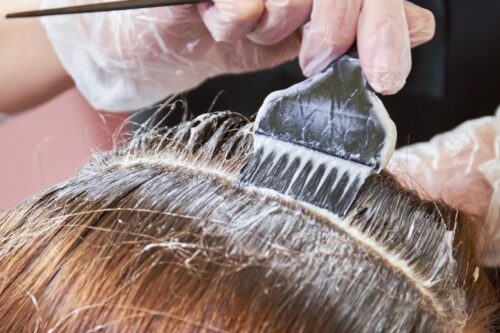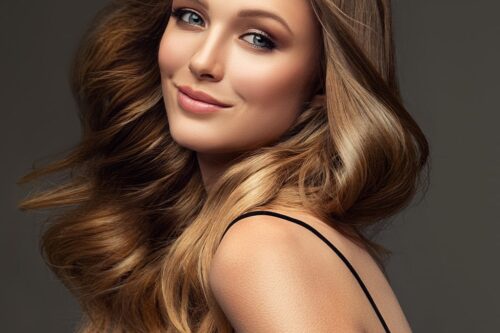Do brunettes go grey or white? It’s a query that baffled countless individuals. As we age, our hair starts to change in color and texture – but what about those with darker locks? Do they also succumb to the dreaded greying process?
We’ll explore these questions as well as how this affects brunettes specifically in today’s blog post. So if you’re a brunette and wondering the same thing, then read on for answers.
Do Brunettes Go Grey or White?
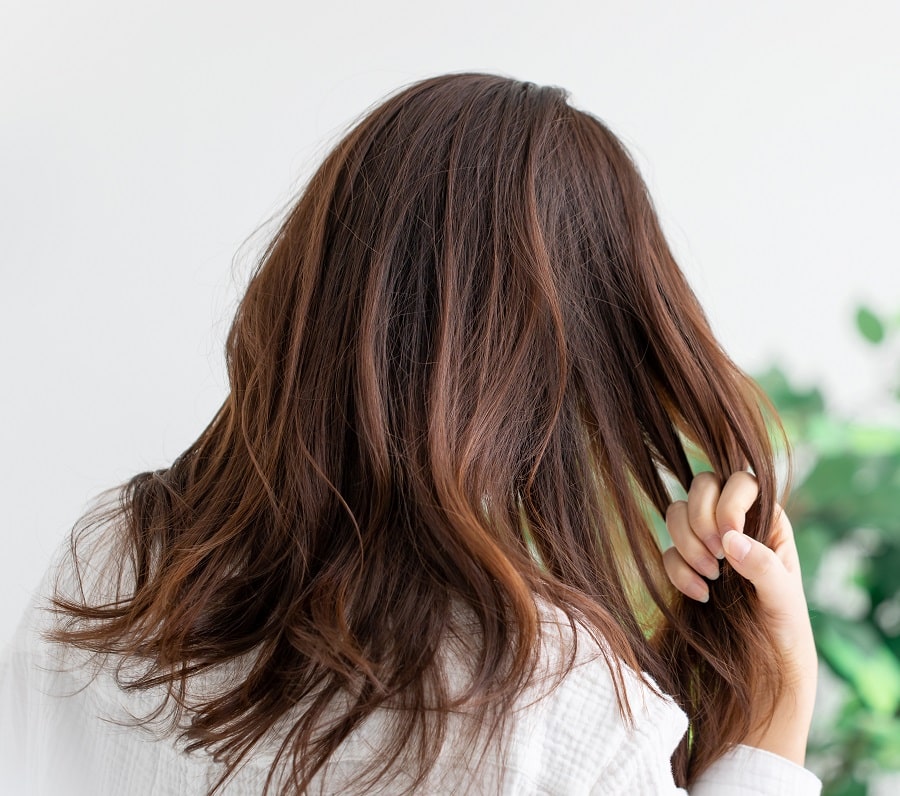
Most often, brunettes begin to grey, achieving a salt and pepper look, before going fully grey and then white over time.
Melanin is the pigment that gives hair its color. As we age, our bodies produce less melanin, and as this pigment disappears, so does our natural hair color. This loss of pigment is what causes hair to appear grey and silver. Eventually, when hair loses all its pigment, it becomes white.
What Causes Hair to Go Grey or White?
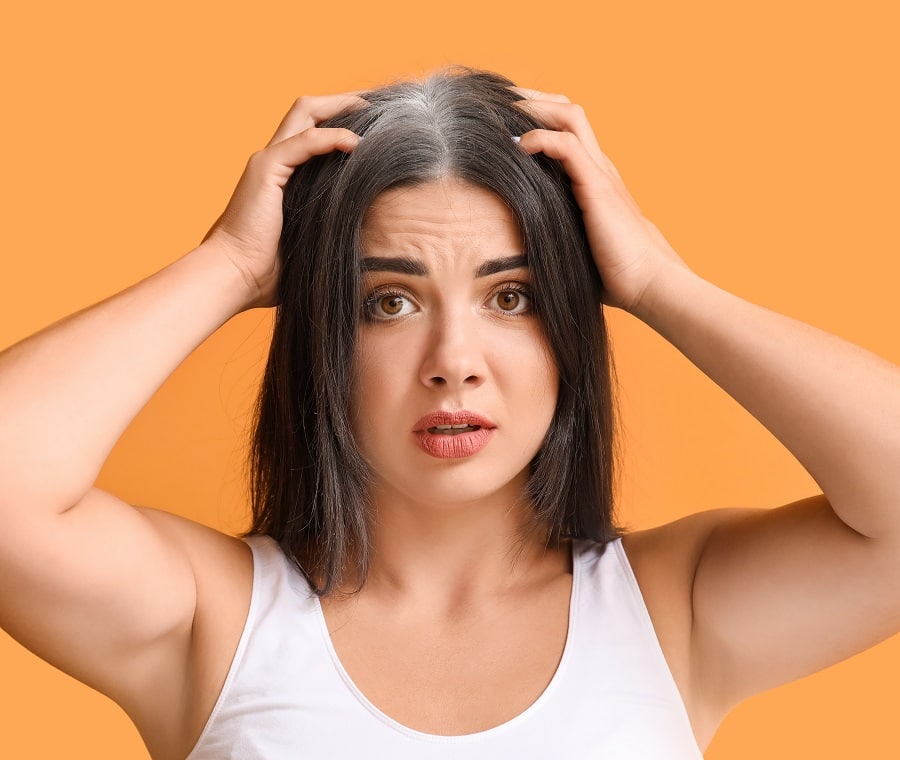
The amount of melanin present in each strand decides hair hue. As time passes, the production of melanin in our bodies diminishes, resulting in grey (and eventually) white strands replacing the original hue of our hair.
Genetics plays a large role in determining when this process will begin, as some people may start greying at an earlier age than others.
Genetics
Genes are responsible for producing the enzyme that produces melanin, so if you have family members who began greying early on, it’s likely that you will too.
The greying process may also speed up due to certain medical conditions, such as alopecia areata or vitiligo, which cause premature greying of the hair.
Stress
Stress has been linked to premature greying of the hair due to its effect on hormones and other bodily functions. When under stress, your body releases cortisol which can interfere with melanin production leading to grey hairs appearing faster than normal.
Moreover, extended periods of pressure can impair the immune system, making it more challenging for your body to battle off ailments which could potentially lead to an earlier onset of grey hairs.
Hormones
Hormonal changes can affect the rate at which hair turns grey or white, with varying degrees of pigment production from melanocytes. For instance, during menopause, women may experience their first few grey hairs due to decreased estrogen levels that negatively impact pigmentation production over time.
The cause of grey or white hair is intricate and may differ from individual to individual. Though heredity may be a factor, additional elements such as environmental impact, stress levels, and hormonal shifts can all affect the greying of hair.
Let’s now take a look at how this affects brunettes specifically.
How Does This Affect Brunettes?
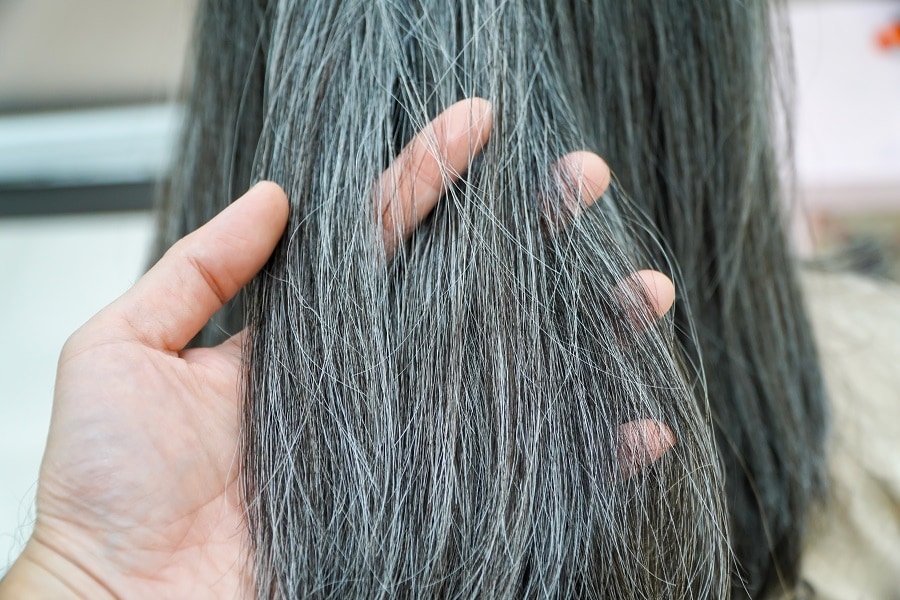
Brunettes tend to experience a quicker depletion of melanin, resulting in their hair turning grey or white sooner than blondes and redheads due to the greater amount of pigment they possess. The rate of greying also varies from person to person, depending on their genetics and lifestyle habits.
Hormonal fluctuations may result in the premature greying of hair, particularly for women who are experiencing menopause or taking certain medications such as oral contraceptives and antidepressants.
These hormones can interfere with the production of melanin, which leads to an increased amount of grey hairs appearing at a younger age than normal.
Exposure to environmental contaminants like smoke, dust, and other toxins can lead to premature greying due to oxidative stress caused by free radicals in the atmosphere.
Additionally, excessive sun exposure has been linked with premature greying since UV rays damage the cells responsible for producing melanin in your scalp and skin.
As brunettes age, the melanin in their hair begins to deplete, and hormone levels may fluctuate, making them more susceptible to environmental factors that can cause premature greying.
So, Do Brunettes Go Grey or White?
Brunettes become grey, and eventually, hair turns white as they age, just like any other hair color.
When we age, our bodies produce less melanin, the pigment responsible for giving hair its color. With less pigment, hair greys, and as it completely disappears, hair turns white.
FAQs
Are you interested in learning more about how to prevent greys? Read on for the most frequently asked questions about hair greying.
Yes, eating a balanced diet rich in vitamins, minerals, and antioxidants can help slow down the greying process- but it won’t keep you from going grey entirely. Some foods that promote hair health are spinach, kale, blueberries, sweet potatoes, and eggs.
Stress can make your hair turn grey. To avoid this, consider what you can do to promote relaxation in your life. Journaling, yoga, and going for walks are all ways proven to lower stress and boost your mood. As a bonus, your hair will benefit, too.
Besides watching your diet and stress, the best way to prevent greys is to treat your hair carefully. Make sure you’re using quality products that are specifically designed for your hair type so they don’t strip away natural oils from your scalp.



